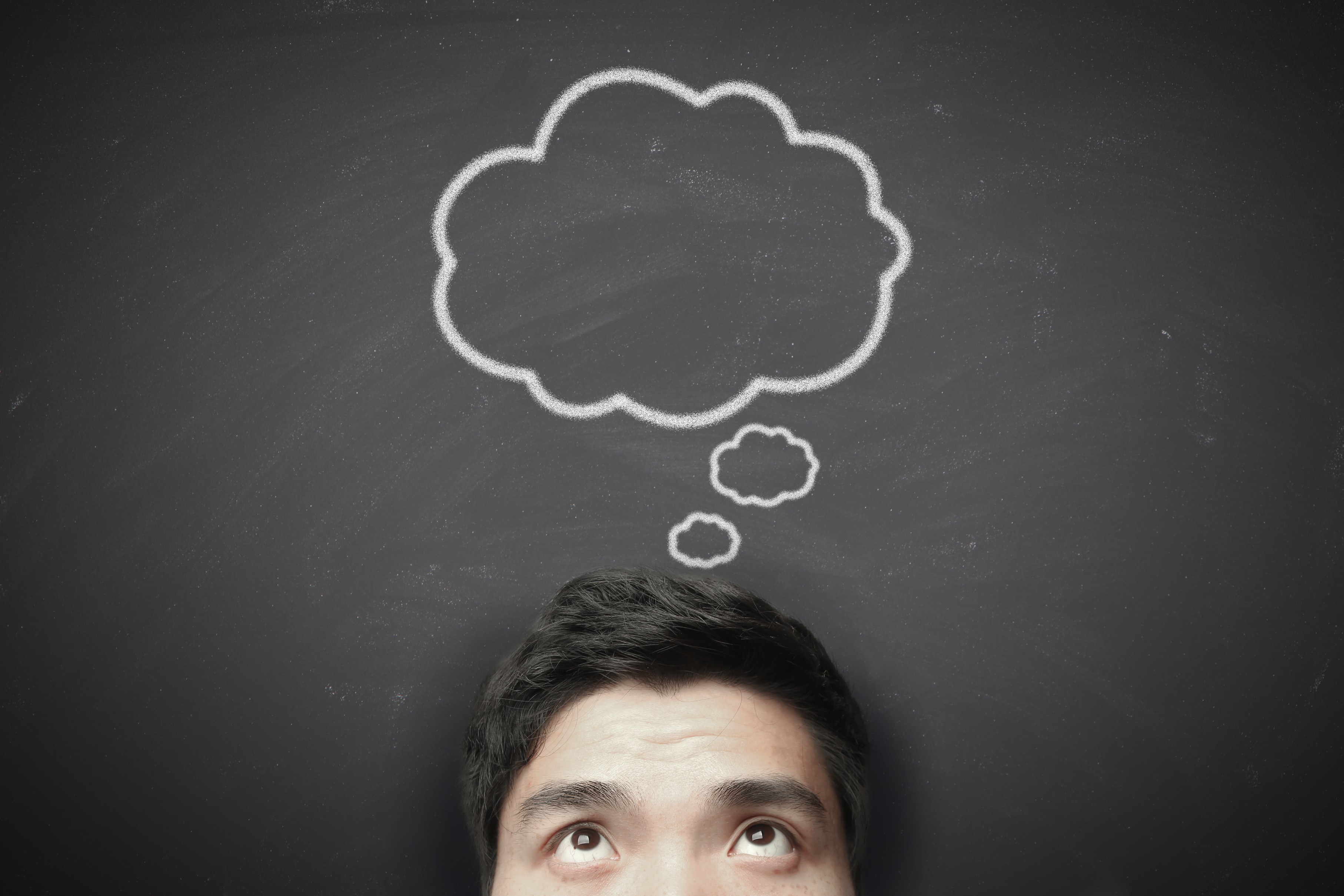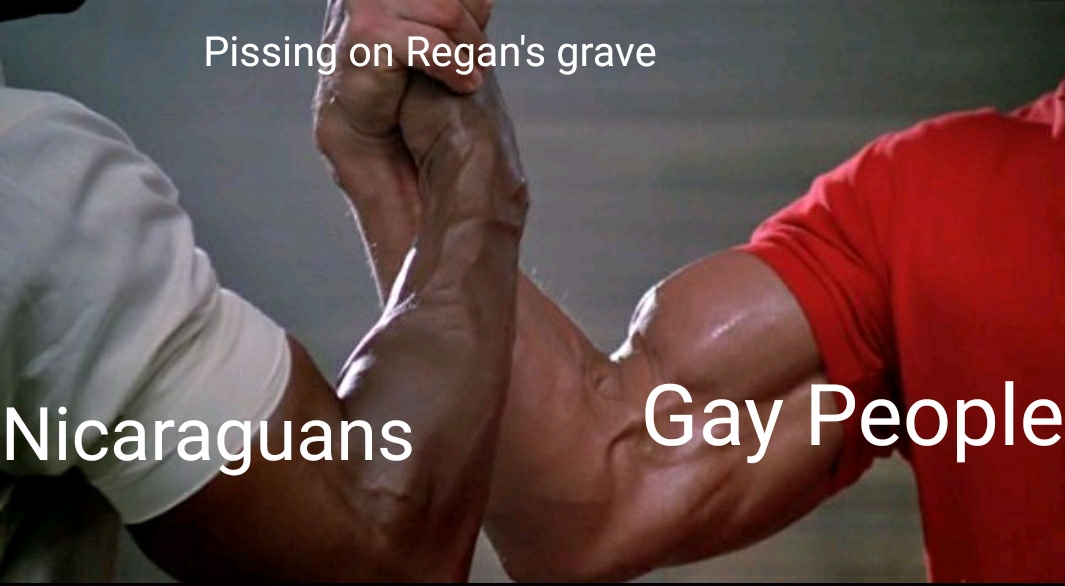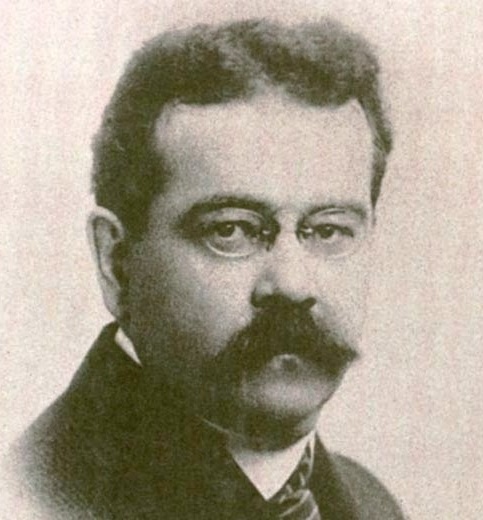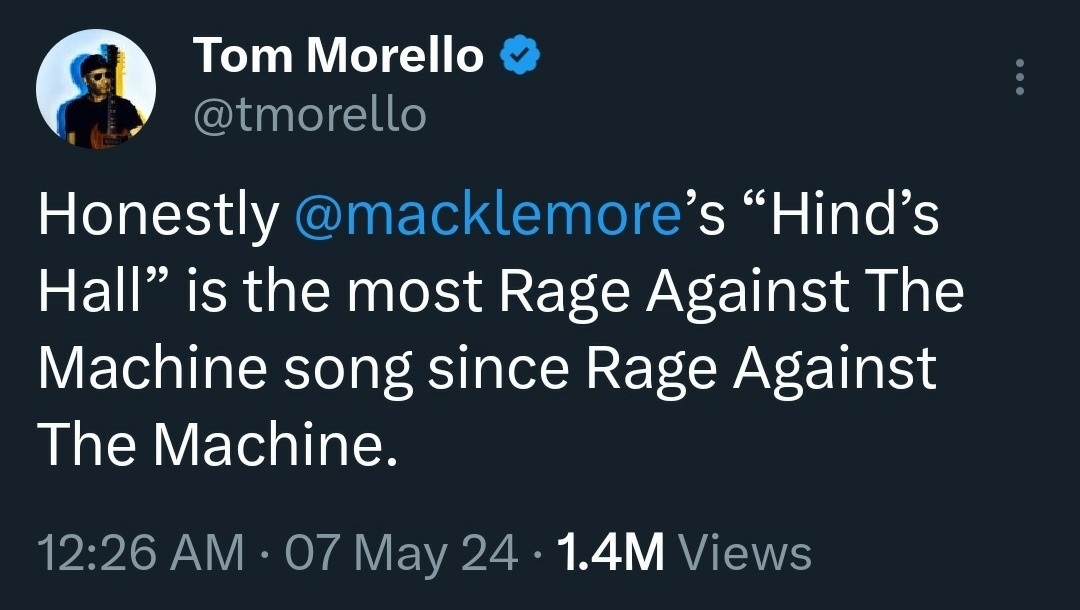Explain like I’m a dipshit, what are 3 of their important contributions?
SpookyGenderCommunist [they/them]
Mao ZeDong x Nikita Khrushchev Friends to Enemies to Lovers Erotic Fan Fiction

- 2 Posts
- 100 Comments

 8·6 days ago
8·6 days agoNow I’m imagining a gulag where liberals are forced to write SuperWhoLock fan fiction, until they learn to stop doing it about politicians

 12·6 days ago
12·6 days agoI liked your post, comrade
Can someone explain the joke to someone who has always been shit at math?

 3·8 days ago
3·8 days agoHaven’t read much of his work, but he’s buried not far from Marx, in High-Gate cemetery, along with a bunch of other socialists and communists, which I thought was cool, when I went there.

 2·24 days ago
2·24 days agoThe Sahwari people are also very progressive and ideologically strict with their Marxist-Leninist thought, with the party having strayed little from its roots despite being exiled to refuge camps in Algeria.
Is there anywhere I could read more about the POLISARIO Front, and its application of ML?

 6·25 days ago
6·25 days ago

 8·28 days ago
8·28 days agoOrigins of the Family, Private Property, and The State by Engles - This is result foundational, as others have noted.
Make Way for Winged Eros by Alexandra Kollontai - There’s a section in here that’s a historical materialist account of love under different forms of class society. It honestly doesn’t get talked about enough.
Capitalism and Gay Identity by John D’emilio - basically what it says on the tin. Building on prior Marxists like Engles and Kollintai, D’emilio looks at industrial capitalism’s influence of the formation of modern gayness.
Caliban and the Witch by Sylvia Federici - Though principally about the oppression of Women, this book is a Marxist account of the early modern witch hunts, their relationship to enclosure of the Commons, and colonialism in the new world. A process which, over the next couple centuries, regimented and categorized queerness in ways that would simultaneously fuel the oppression of queer people, and their ability to organize politically against that oppression.
Transgender Warriors by Leslie Feinberg - my favorite book on this list, and one that ties all the others on this list together. Feinberg is doing an historical materialist analysis of transness, which can be broadly applied to queerness generally. I would probably read this first, as it’s pretty accessible.

 3·30 days ago
3·30 days agoWithout reading anything but the headline… Does it have to do with all of them being influenced by Helena Blavatsky?

 18·1 month ago
18·1 month agoThat whole New Atheist crowd fucking sucks, so hard. I hate these people so much.

 211·2 months ago
211·2 months agono freedom of movement
Source?
- constant shortage of any goods
Think about why this might be, Friend. Really think hard about it. What large geopolitical things were happening at the time?
- being a dictatorship
Yes, of the proletariat
- (contrary to your first point) a housing shortage
Again, source? Also, wondering what you think happened before East Germany existed that might have contributed to this. Surely this changed over time
- a culture so dictated by work that people had little to no free time
Because people working 3 jobs under capitalism have so much free time? What does this even mean?
- political pressure
Again, what does this mean? All Political cultures and institutions exert pressures on their population… That’s how politics works.
- control over the media
I’ll agree that the siege mentality of much of former socialism led to a lack of press freedom, which was ultimately detrimental, but again… Why might this have been?
- the fucking stasi
Quick, name the West German secret police!
Let’s assume for a minute that everything you’ve said is entirely true. If we’re to be thoughtful about this. East Germany was a historically poorer, agrarian, region of Germany, much less industrialized, artificially lopped off from the west (not by the USSR, btw, who wanted a unified, nonaligned Germany, like the allies had done with Austria), it was heavily sanctioned, had been bombed to shit, much like the rest of Europe, but was made to pay the USSR reparations, that it wasn’t as capable of paying, as a unified Germany would have been. The USSR even dismantled entire east German factories and shipped them back to rebuild their own industrial base.
How do you expect any country to not come out of that with considerable problems?
And the GDR did have considerable problems. I think you and I would disagree on what those problems were, but in the broad strokes, that much we can agree on.
But I would contend that, even with that in mind, East Germany ended up being a much more positive socialist experiment in many respects then say, Romania, which suffered a much more severe centralization of power, and cult of personality issues, then East Germany did.
In fact, looking at the makeup of the East German Parliament and its mass organizations, there was a much greater degree of representation of various social cleavages then in some other Eastern Bloc states.
While you could say argue that this was only ‘on paper’, that really depends on what period of East German history you’re looking at, as the electoral system was altered a handful of times.
Regardless though, this was an expression of the fact that East Germany had a more open Political culture due to its institutions being establisehed as part of an intended nonaligned, unified, German state. And due to the fact that it had received the socializing effects of industrial capitalism that gave it things like an incredibly progressive Queer movement, that other Eastern Bloc states, which were formerly feudal backwaters, hadn’t developed.
Tl;Dr - this shit is a lot more complicated than listing off bullet points for “why East Germany was Evil”, That I was taught in the 7th grade.

 11·2 months ago
11·2 months agoIt’s gotten some high praise


 4·2 months ago
4·2 months agoReposting part of a comment I made in another thread about this, but:
animation across east Asian countries outsources labor between each other all of the time. Your Japanese anime is just as much Korean, Chinese, and Vietnamese at this point, as it is Japanese.
Go look at the credits of most modern anime productions out of Japan, and large swathes of the names you see aren’t Japanese, but are from those other countries.
Even a fairly low stakes, low budget, slice of life anime, like Non Non Biyori has Vietnamese names all over its god damn credits, because globalization has impacted the east Asian animation industry in such a way, that there’s an large cross pollination of talent across borders, for better and worse.
And that’s not to mention the western animation that gets outsourced to these places, South Korea especially.
The fact North Korea is also involved in this complex outsourcing process shouldn’t be surprising to anyone who knows anything about how that industry works.

 16·3 months ago
16·3 months agoI miss Me_IRA

 19·3 months ago
19·3 months agoeconomically developing these regions because imperialists need to do that
I really want to take these people to West Virginia. If this were true, I wouldn’t have encountered at least 3 or 4 instances of half the road having fallen into the river valley below, while on a road trip to Matewan a couple years ago. Not to mention the rampant poverty, food deserts, and the commercial dominance of Dollar General.

 19·3 months ago
19·3 months agoLMFAO all of his sources, listed In the description, are by James Lindsey

 11·3 months ago
11·3 months agoThank you! For anyone else reading this thread, I’d highly recommend Transgender Warriors by Leslie Feinberg, Capitalism and Gay Identityby John D’emilio, and Caliban and The Witch by Sylvia Federici, for good dialectical analyses of capitalism’s impact on queer people.
Federici’s work focuses on cis women, but makes a good theoretical base that Feinberg builds on, and that leads well into D’emilio’s work. So that’s the order I’d read them in.

 29·3 months ago
29·3 months agoLGBT rights weren’t on the radar of the average marxist
Plenty of German leftists, Marxist or otherwise signed a petition, in the 1890s, opposing Paragraph 175 of the German Legal code that criminalized homosexuality, including Albert Einstein, August Bebel, and Karl Kautsky.
Queer activists, like Karl Heinrich Ulrichs and Magnus Hirschfeld, actively sought out far left politicians in their attempt to repeal the law.
Bebel, who was the one to sponsor the bill to repeal paragraph 175, continued to be an advocate of women’s and queer rights throughout his life and career.
Alexandra Kollontai was Bisexual and opposed the criminalization of homosexuality under Stalin’s administration.
Harry Hay, who would found The Mattachine Society, one of the first gay rights groups in the US, was organizing farm workers for the Communist Party as far back as the 1930s.
Queer issues were definitely on the radar of plenty of Socialists in the early 20th century.
This argument gives the same vibes as “but everyone was racist back then!” arguments that American liberals give to hand wave away past injustices.
If we’re to be thoughtful dialectical materialists about this: while queerness has always existed, and cultures throughout history have had queer subcultures, such as the Kathoey in Thailand or Molly Houses in England, the development of Capitalism brought with it a trend towards a more systematized, wider reaching regimentation of reproductive labor, then what had been seen under previous forms of class society.
On the one hand, this brought about the categorization and subsequent oppression of queer people. But on the other hand, industrialization brought people into urban areas, socialized labor, and allowed queer people to form larger communities, who could start organizing politically on a large scale.
Since the Soviet Union had not industrialized, that pressure on queer people in the Soviet Union, to organize at a large scale, didn’t exist. And the prevalence of queer organizing in the more industrialized west, brought Stalin’s administration to make the idealist error that queerness was an outgrowth of “bourgeois decadence”, rather than material conditions.

 162·3 months ago
162·3 months agoHis writing is clearer than almost any other Marxist, which imo is another factor
Hot take: I think Stalin is an incredibly mid writer, and Mao is far more clear and easy to understand.



That’s an ask on Tumblr. If OP responds. It’ll be up on their blog, with the question askers blog attached.